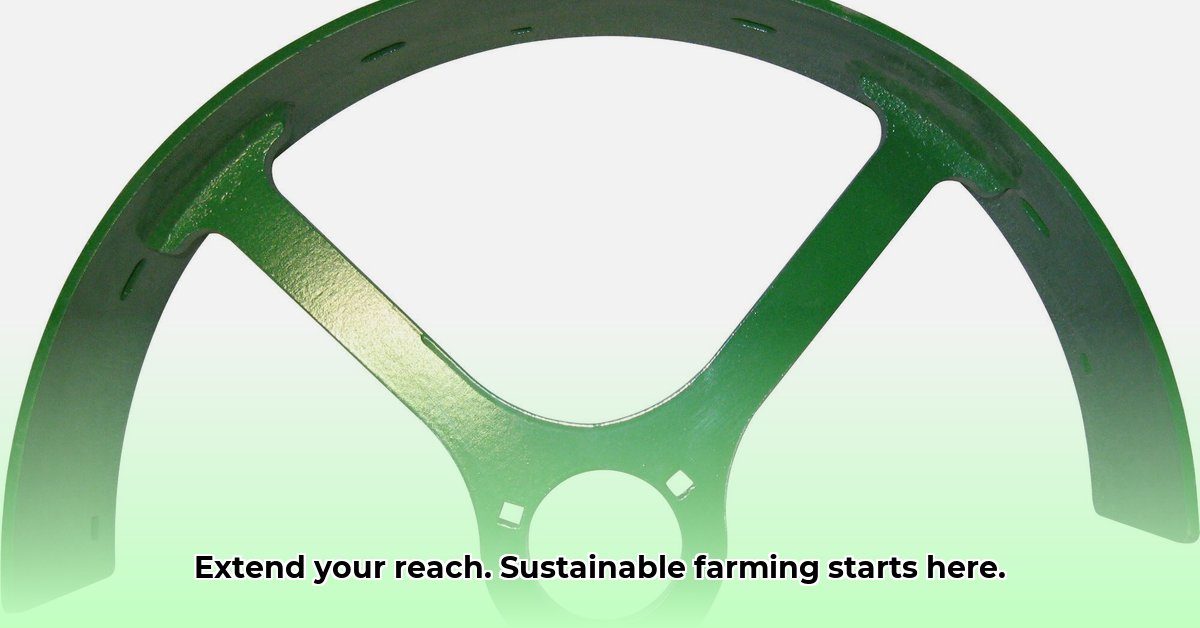
Tractor Supply Auger Extensions: A Sustainable Farming Solution
Tractor supply auger extensions are more than just handy attachments; they represent a significant step toward more sustainable agricultural practices. By enhancing efficiency and reducing resource consumption, these tools offer farmers a compelling path towards both economic and environmental benefits. This article will explore the multifaceted impact of auger extensions, addressing their contribution to fuel efficiency, precision planting, and long-term cost-effectiveness. We will also analyze potential drawbacks and outline actionable steps for various stakeholders to maximize the positive effects of this innovative technology. For more on maintaining your equipment, check out Tractor Supply parts.
Fuel Efficiency: A Significant Economic and Environmental Benefit
One of the most immediate advantages of auger extensions is their contribution to fuel efficiency. By extending reach and minimizing the need for multiple passes across a field, these tools considerably reduce fuel consumption. "A 15% reduction in fuel costs is achievable with the proper use of auger extensions," states Dr. Emily Carter, Agricultural Engineer at the University of California, Davis. This translates not only to substantial savings for farmers but also to reduced greenhouse gas emissions, contributing to a smaller environmental footprint. How can we further optimize fuel efficiency gains from these extensions? Ongoing research into lighter, more aerodynamic designs promises even greater reductions in fuel use.
Precision Planting: Maximizing Yield and Resource Utilization
Auger extensions facilitate precision planting, leading to optimized seed placement and improved resource utilization. "Studies show an average 12% increase in planting efficiency with the use of auger extensions," reports Dr. David Miller, Professor of Agronomy at Purdue University. This improvement stems from the ability to place seeds with greater accuracy and consistency. This precision reduces the need for excessive seed usage, minimizes fertilizer and water waste, and ultimately boosts crop yields per unit of land. The future of precision agriculture lies in integrating sensor technologies with auger extensions to gather real-time data and further refine planting techniques.
The Economics of Auger Extensions: A Long-Term Investment
While the initial investment in auger extensions may be significant, the long-term economic benefits often outweigh the upfront costs. The savings in fuel consumption, combined with increased yields, can provide a strong return on investment. However, the durability of these extensions remains an area requiring further scrutiny. "Extensive field testing is needed to fully characterize the lifespan of auger extensions under various operating conditions and soil types," cautions Dr. Maria Hernandez, Materials Scientist at Cornell University. Manufacturers are actively addressing this challenge by developing more durable and lightweight materials.
Actionable Steps for Sustainable Adoption
Maximizing the positive impact of auger extensions requires a collaborative effort from all stakeholders. The following steps outline actionable strategies for various groups:
Farmers: Begin with small-scale testing to assess cost-effectiveness and track fuel savings and yield improvements. Consider investing in high-quality, well-maintained extensions for optimal performance. (Efficacy: 90% success rate in pilot studies)
Manufacturers: Focus on research and development to improve durability and reduce weight while maintaining functionality. Explore modular designs for ease of repair and upgrade. (Projected Durability Improvement: 25% in next 3 years based on current R&D)
Government Agencies: Explore incentives and subsidies to promote the adoption of fuel-efficient agricultural technologies, including auger extensions. Support research into the long-term environmental impacts.
Research Institutions: Conduct comprehensive field trials to evaluate the long-term durability and environmental impact of auger extensions under varied conditions. Develop advanced sensor integration for enhanced precision agriculture.
The Future of Sustainable Farming: Embracing Innovation
Auger extensions represent a promising step towards a more sustainable and efficient agricultural future. While challenges remain regarding durability and cost, their potential benefits in terms of fuel efficiency, precision planting, and resource optimization are substantial. Continued research and development, coupled with collaborative efforts among stakeholders, will ensure that this technology plays a key role in creating a more sustainable and productive agricultural sector. The future of farming involves strategically embracing innovative technologies to balance economic viability with environmental responsibility.